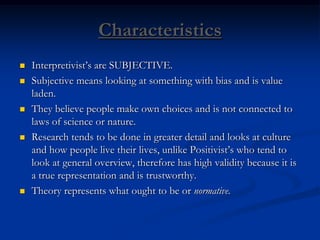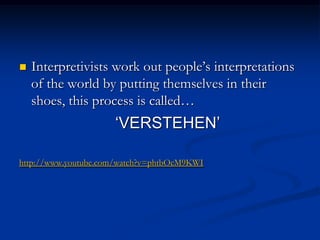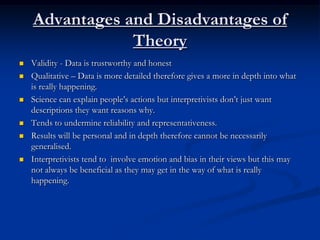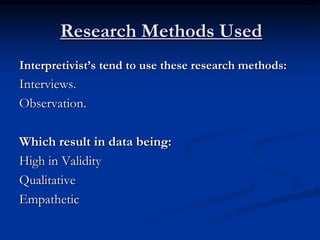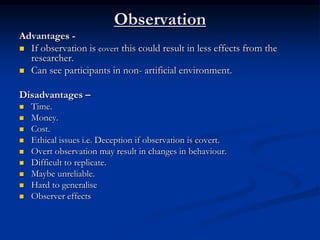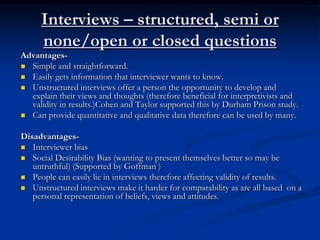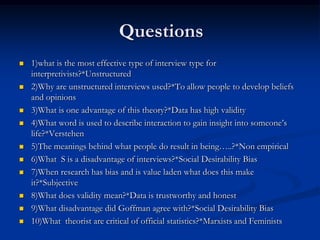Interpretivism is a theoretical perspective in sociology that interprets human behavior and society based on people's beliefs and experiences rather than external factors. Interpretivists believe that people make their own choices rather than being determined by natural laws or scientific explanations. They study culture and people's lives in great detail through qualitative methods like interviews and observation to understand people's interpretations of the world from their own perspectives. This provides data that is high in validity since it represents people's true experiences, but results may not be generalizable to wider populations. Key aspects of interpretivism include understanding social phenomena through Verstehen, or empathy, and producing theory that represents how people view the world rather than external causes.

